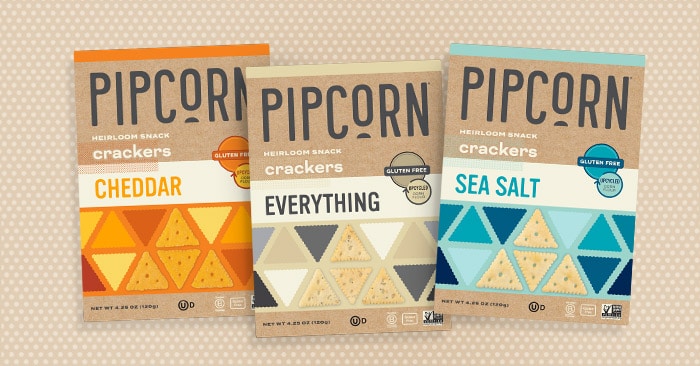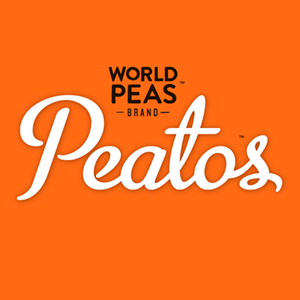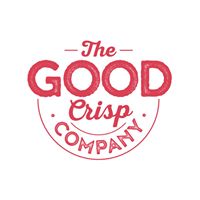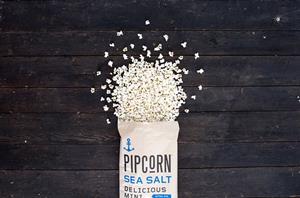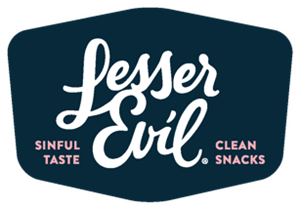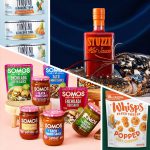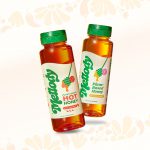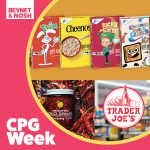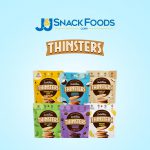Salty Snacks: Ecomm Blooms; Retail Launches Leap Forward
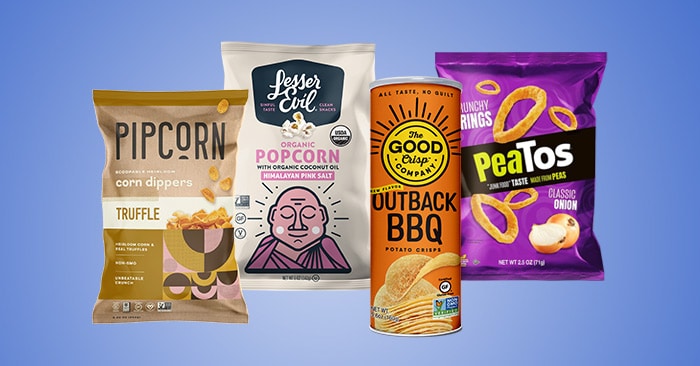
Consumers’ salty snacking appetites seem to grow with more time spent at home — and brands, facing decreased store trip frequency, have quickly had to adjust their retail channel strategy and product mix to help keep them satisfied. Despite the swiftness of the shift to emphasizing ecommerce, smaller snack brands are finding ways to bloom online, including with multipacks. At the same time, some are leaping forward with innovative brick and mortar retail launches.
House Party
According to IRI’s State of Snacking report, most snacking categories recently saw a shift: purchases of larger pack sizes grew as ecommerce surged and consumers stayed home.
That’s been helpful as, during the COVID-19 related lockdowns, store trips have declined, as have impulse purchases. Even CPG giant PepsiCo, which owns FritoLay, is looking to direct-to-consumer sales, launching two new D2C sites, including one for snack bundles.
“One of the benefits of ecommerce is that [geography] doesn’t have to be a limitation anymore,” Gibu Thomas, PepsiCo’s SVP & head of ecommerce, said. “We can go as deep as we want in terms of the assortment that we want to offer; even if a retail partner says ‘hey the scale doesn’t justify the effort’ we can say ‘well it’s really important for the people who love our brands to get access to those brands so let’s make them available.’”
Though there was a boom in old-line, conventional brands early in the pandemic as consumers started to pantry-load, many niche brands saw growth as well, despite their lower overall volumes than conventional players, noted Sally Lyons Wyatt, EVP and practice leader with retail information firm IRI.
Many of these emerging brands also rushed to adjust their supply chains and moved sales strategies and storytelling online. Some also moved to provide bigger, variety-focused packs to keep consumers snacking longer — a strategy that’s helping offset the lack of impulse purchases in stores.
In one sense, the smaller brands grabbed a strategy from the likes of Frito Lay in launching multiserve packs to provide a smorgasbord of salty snacks at a value for customers.
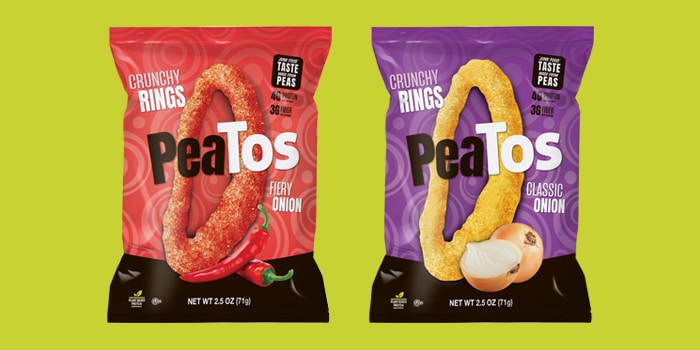
In the fall, pea-protein crunchy snack brand PeaTos debuted new packaging more analogous to conventional snack packaging with hopes of catching consumers’ eyes in stores. PeaTos is often stocked in the produce department, and has recently picked up a checkout placement as well, but the brand’s story has turned digital during COVID-19, with ecommerce sales quadrupling to become about 40% of the business. The brand’s D2C site just launched in January.
“[Direct-to-consumer] was just something we were starting noodling on, but suddenly it became center stage,” Desai said. “Now we’ve gone so far to be able to fulfill from our own offices — becoming a makeshift ecommerce company overnight.”
One benefit of ecommerce, on the other hand, is not worrying about store placement, he said; instead, the United States Postal Service (USPS) and United Parcel Service (UPS) essentially became retail partners, Desai said.
“The increase in ecommerce has been far greater than the small slowdown in impulse, so it has actually been a huge net positive,” Desai said.
Along with the website launch, the brand debuted variety and bulk packs in January as well, which founder Nick Desai said are “crushing it” during the pandemic. PeaTos previously sold four-packs online and also sells a five-pack of Cheese Curls at Kroger. Desai thinks there’s promise in the multipack beyond the pandemic.
“I think COVID accelerated the appeal of that, but certainly I don’t think it’s linked to COVID alone,” he said.
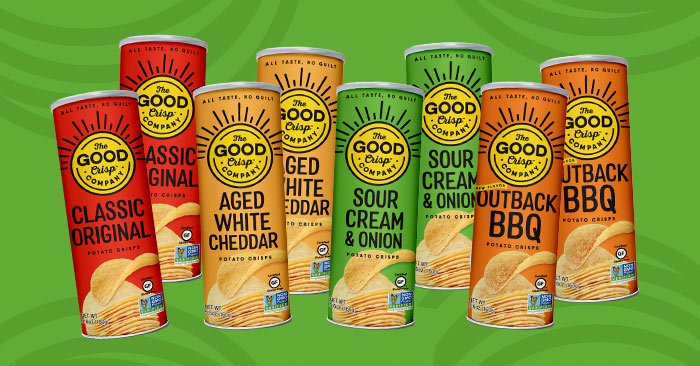
Similarly, chip brand The Good Crisp Company has seen ecommerce sales increase three-fold during COVID-19, something the brand will continue capitalizing on moving forward, cofounder and CEO Matt Parry said. Its new variety packs of 5.6 oz. and 1.6 oz. canisters launched last week online and will likely launch in retail next year. Previously, the brand sold single flavors in 8- and 12-packs online, but Parry thinks the new offerings will help drive ecommerce sales even further. Already the packs, originally planned for fall 2020, are in the brand’s top three SKUs online, he added, noting one thing’s certain in an unpredictable world: people want their potato chips
“Our strategy in the short term is doubling or tripling down on ecommerce,” he said. “What we can spend and what we do in the next three months will be beneficial for the next 12.”
Still, Parry said, the long-term strategy lies with brick-and-mortar, adding that he believes that 90% of the business will likely come from retail, which already has a “strong head start.”
A rebrand last year aimed for more conventional appeal for a brand that had launched in the natural channel but is currently in over 9,000 stores, including Whole Foods, Walmart and Wegmans. The brand’s Aged White Cheddar and Sea Salt & Vinegar flavors, both launched in 2019, haven’t seen much retail pickup during the pandemic, Parry said.
“We are trying to stay in front of brokers and get things paired up [for the new flavors],” he said. “In some regard we’re not so worried about macrotrends shifting because we sort of rely on mass appeal. Regardless of how society changes, which we just don’t know yet, we still have a value proposition that plays really importantly in that.”
Life Offline: Retail Launches Leap Forward
Pipsnacks certainly felt ecomm pop: the brand’s online sales are up 200%, with D2C sales up 450%, during the past few months. The company’s 4-pack of popcorn is the most popular item, followed by Vegan Caramel Pipcorn, and Corn Dippers, which launched last August. The brand was lucky in that it had both increased inventory prior to COVID-19 and had launched on Amazon in Q4 of 2019, cofounder Teresa Tsou said. The availability and inventory meant that the brand averaged triple the number of new customers daily than before the pandemic, she added.
“Some retailers merchandise us near checkout, especially when we’re on secondary displays. The discovery that isn’t happening in the grocery store anymore is definitely a challenge, but a lot of our digital efforts and partnerships with grocery delivery services have mitigated that,” she said. “That’s definitely a signal that customers are feeling more comfortable trying new things online and substituting some of that discovery with online browsing.”
But retail still matters; the brand two weeks ago launched upcycled corn flour-based crackers in Whole Foods, marking Pipsnacks’ first foray into a new section. The company’s 2020 goals include introducing the rest of its line to loyal Pipcorn eaters: still, they’ll try to drive trial online. The brand will feature digital coupons and online promotions where customers can send others snacks and also launch a new Very Important Pipcorn (VIP) club online to communicate with consumers and receive feedback. As the portfolio grows, Pipsnacks will, also, likely launch multipacks, something customers have requested, Tsou noted.
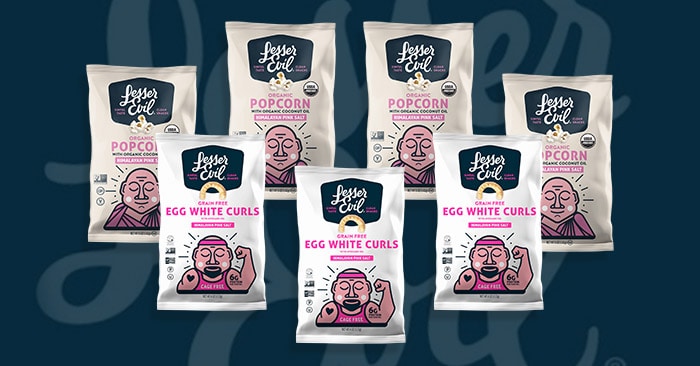
Snack brand Lesser Evil also saw a “huge spike” online from the end of February through March, CEO and president Charles Coristine said — but it was also facing COVID-19 related internal challenges.
The company operates its own production facilities in Danbury, Connecticut, and eventually saw four employees diagnosed with the coronavirus (all eventually recovered).
“We do things our own way which has added a level of comfort even though it’s been hairy,” he said.
“Hairy” times included periods of operating at 40% capacity while employees self-isolated, he said. Ecommerce sales increased to almost 15% of total sales, up from 5% before the pandemic, and Amazon sales are “through the roof,” Coristine said. But grocery is also up 25-30%, he noted.
Retail is still important, he said, and the brand will move forward with “extremely aggressive” promotion plans through the fall, while also pushing new products as well. The vegan popcorn SKUs will likely become the brand’s flagship products, he explained, and the company will launch at least three new items in the next six months, starting with seasonal Lemonade, Grapefruit and Watermelon Hibiscus popcorn launching this month at Whole Foods, New Seasons Market, The Fresh Market and Metropolitan Markets, along with Fourth of July-themed multipacks launching initially at Whole Foods.
Working online and off has brought many lessons to the company, he added.
“It’s been a transformative time for everybody; we’ve become much more of a family where we’re all realizing we’re so vulnerable,” Coristine said. “I think we’ll emerge from this a much stronger group of people.”
